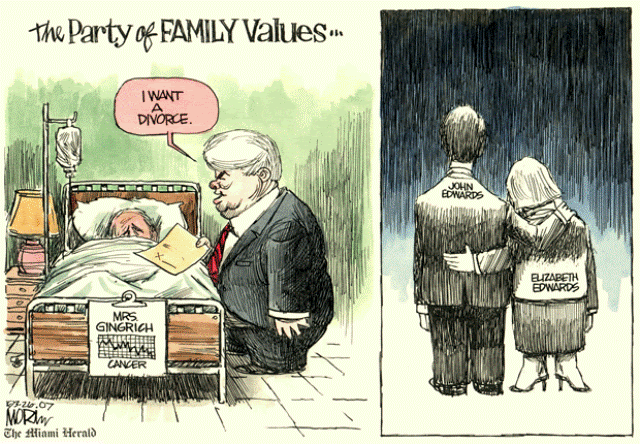In the don't-miss category is this blog entry at the ACLU Blog by Ben Wizner posting from the Gitmo hearings of Australian David Hicks, A Tailor-Made Guilty Plea.
Here are some of the best parts:
First, following a somewhat arcane discussion, the judge ruled preliminarily (while claiming not to) that one of Hicks's lawyers, Rebecca Snyder, could not represent Hicks, because she had been appointed by the chief military defense counsel but was not herself on active duty. This was wrong – and the judge allowed that he might revisit the issue after briefing — but the result was the first empty chair at Hicks's table.
Next, and far more troubling, the judge stated that Hicks's civilian defense counsel, well-known criminal defense attorney Joshua Dratel, had not submitted a letter indicating his agreement to comply with the rules and regulations of the Commissions, and therefore was not qualified to serve as counsel. Under Commission rules, a civilian lawyer must sign an agreement issued by the Secretary of Defense indicating that the lawyer agrees to abide by the Commission's regulations. The problem for the judge was that the Secretary of Defense had not yet created that agreement, and therefore Dratel could not sign it.
Instead, the judge had created his own version of the agreement – thereby, in Dratel's words, “usurping the authority of the Secretary of Defense.” Dratel would have signed even that version – so long as the agreement made clear that it applied only to regulations that already existed, and not to those (and there are many) that have not yet been issued. “I cannot sign a document that provides a blank check on my ethical obligations as a lawyer,” Dratel explained. In simple terms, Dratel was unwilling to pledge compliance with rules that he had not yet seen.
The judge was unpersuaded. “I find no merit in the claim that this is beyond my authority,” he said. “That's sometimes what courts do, they find a way to move forward.” Because Dratel refused to sign the agreement as written by the judge, he could not serve as counsel. There was a second empty chair.
“I'm shocked,” said Hicks, “because I've just lost another lawyer. Now I'm left with poor Mr. Mori.” (Major Dan Mori is Hicks's very able military defense counsel.)
This was followed by one of those almost-surreal moments that the Military Commissions routinely produce. The judge had just issued rulings that effectively deprived Hicks of two of his three lawyers. So he decided the time was right to address an issue of fundamental importance: Hicks's clothes. Hicks had arrived in court wearing beige prison attire. The judge said that he thought that a suit and tie, or business casual – which he helpfully defined – would be more appropriate. This practice was “designed to protect the presumption of innocence,” the judge explained, because Commission members who observed the accused in prison clothing might be subconsciously prejudiced against him.

